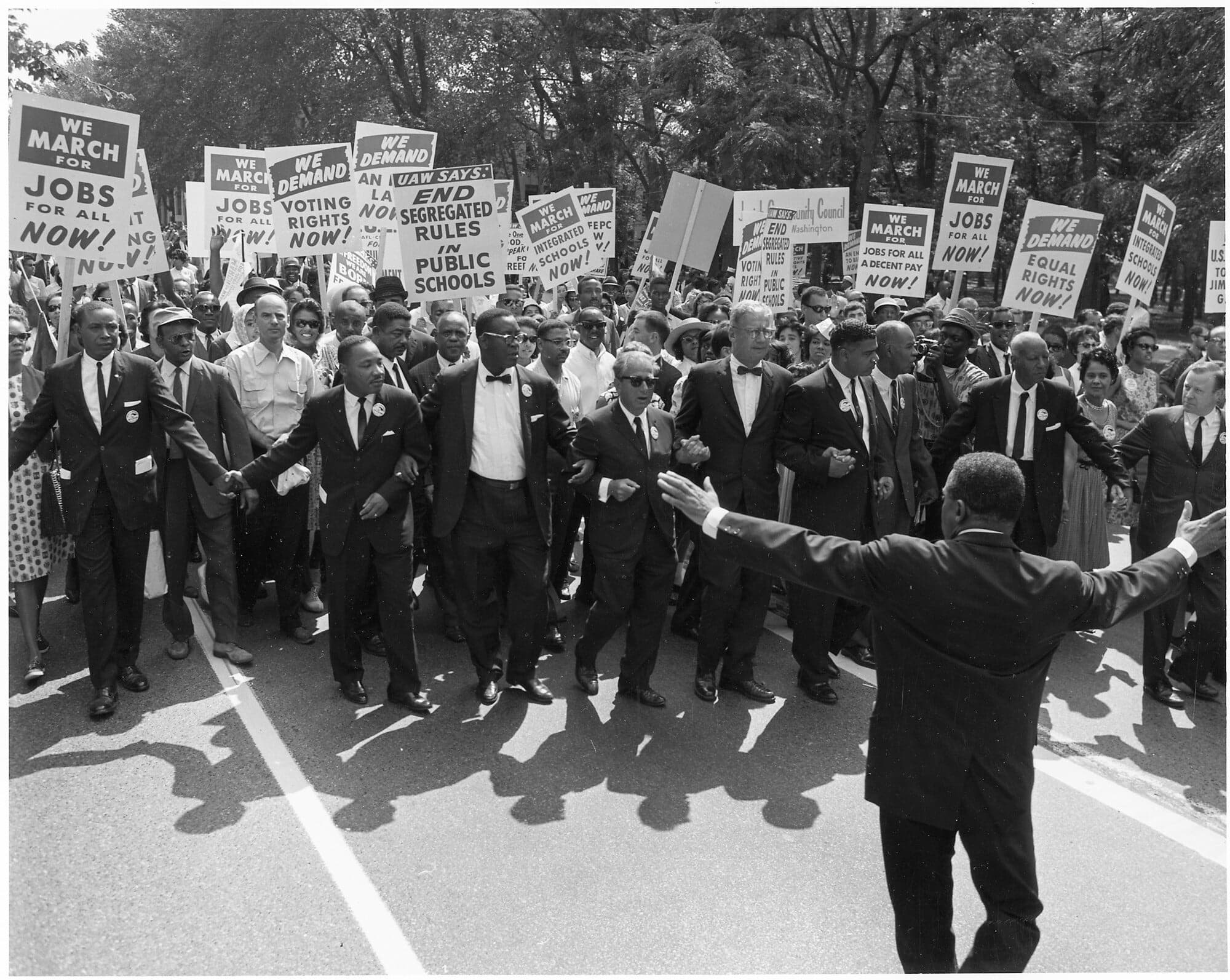August 28 marks the 60th anniversary of the famous March on Washington, where Dr. Martin Luther King Jr. delivered his famous “I have a dream” address. Eighteen months later, President Lyndon Johnson signed the Voting Rights Act into law.
Unfortunately, in 2013, the Supreme Court gutted key provisions of the law in its Shelby County v. Holder decision, which gave states that had historically hindered African-Americans from voting the ability to pass new draconian election laws without federal oversight.
There have been other assaults on American democracy since that decision.
Gerrymandering, compromising election equipment, and spreading disinformation continue to chafe our democratic institutions and processes. Here in Bucks County, a judge blocked a plan approved in the Central Bucks School District earlier this year that would create a map favoring Republican school board candidates in seven of the nine regions where voter registration is split roughly 50-50 between Democrats and Republicans.
Meanwhile, the Pennridge School District has mandated that Hillsdale College’s 1776 Curriculum be incorporated into its social studies programs. Sean Wilentz, an historian from Princeton University, has contended that this curriculum “fundamentally distorts modern American history into a crusade of righteous conservative patriots against heretical big-government liberals.”
The intervening years, however, have also given us some very good legislation, like Act 77, which received bipartisan support in 2019 and has allowed for no excuse mail-in voting, voter drop boxes, and reduced the time to register before election day from 30 to 15 days.
The challenge for us in the coming years will be how we can build on the momentum of our successes to overcome the anti-democratic pressures that we face from authoritarian legislators, biased jurists, and well financed organizations that lavish gifts on government officials to make decisions favoring a few to the disadvantage of the many.
READ: New Report Emphasizes Importance of Upcoming Judicial Elections in Pennsylvania
Ordinary citizens often feel powerless when faced with the enormity of the issues facing them, when in fact there are numerous opportunities that are available to each of us to protect and strengthen our democratic institutions. Here are just a few:
Red Wine and Blue, an organization of women who operate primarily in suburban areas, has been a presence at school board meetings for a number of years. Their participation at these meetings and in the community have provided the perfect antidote to the book bans, the suppression of free speech, and the cultural attacks on LGBTQ+ and African American students brought on by a number school districts in the state. Red Wine and Blue offers various trainings on how regular citizens can counteract those attacks on their redwine.blue website.
March on Harrisburg has, for the past seven years, been committed to taking big money out of politics, passing laws that reflect the will of the people, and developing leaders committed to eliminating political corruption. Most of their work is at the state level. March on Harrisburg’s website provides a smorgasbord of actions that volunteers can take, depending on their interests, abilities, and comfort level. March on Harrisburg also provides training.
The Freedom to Vote Act, which failed to garner a sufficient number of votes in 2021, has recently been re-introduced in the Senate and currently has 50 co-sponsors. This bill would provide for online voter registration; make Election Day a public holiday; ensure early voting; provide for access to mail-in voting and drop boxes; allow for voter registration up until election day; create standards for voter identification; ensure voting rights for citizens released from incarceration; provide for expanded access for disabled, native Americans, military, and overseas voters; ban gerrymandering; restrict anonymous political contributions; and prevent the partisan interference in the non-partisan electoral process across all states.
In the coming months, there will be opportunities for contacting your federal senators and representatives to advocate for this legislation. You can sign up for additional alerts by contacting Blue Pennsylvania through its website.
READ: Teaching Civics In An Age Of Book Bans
Finally, advocacy for a more robust civics curriculum in our schools is essential to the sustainability of democracy. Unfortunately, civics education in and of itself can convey misinformation, like the Hillsdale 1776 Curriculum being pushed in Pennridge School District. PA Youth Vote, a coalition of students, educators, and community members, has worked diligently to assure that education about elections and democracy is incorporated into social studies programs throughout the state.
There are no doubt other ways to make a positive impact on improving democracy, but the important thing to remember is that we do have many opportunities to improve the economic, environmental, and social conditions for everyone living in our communities. Let’s take advantage of as many of them as we can.







